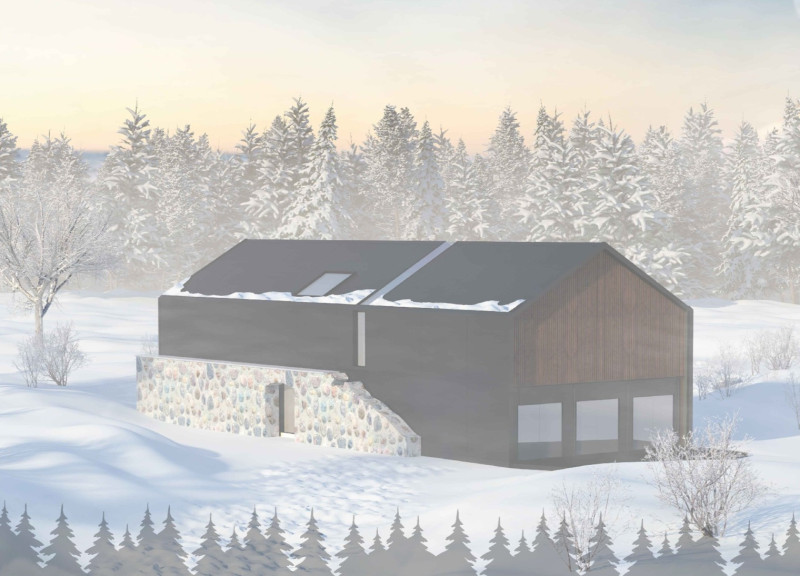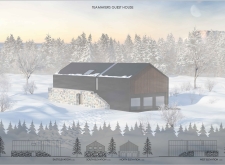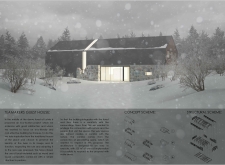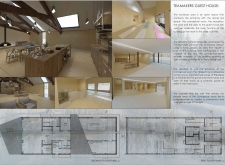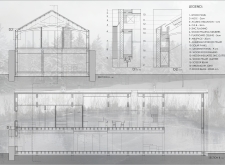5 key facts about this project
The Teamakers Guest House is situated in the forests of Latvia and serves as an eco-tourism retreat that emphasizes a strong connection to nature. The design draws inspiration from local traditional architecture, particularly the barn, maintaining its character while adapting it for modern use. This project focuses on sustainability and encourages community interaction, creating a welcoming space for visitors who wish to explore both the natural environment and the rich local culture.
Architectural Concept
The design revolves around preserving the historical context of the site while incorporating essential modern functions. Open spaces are prioritized, allowing for easy movement and connections between various areas, including a workshop, conceptual room, reception area, store, and guest accommodations. This layout not only aids navigation but also enhances social engagement among visitors.
Material Selection
Local materials play a key role in the construction, with an emphasis on wood and wood composites. These choices support sustainability goals by reducing the carbon footprint associated with transportation. Additionally, using polycarbonate walls in certain areas promotes daylight entry, enriching the interior atmosphere while connecting spaces visually.
Spatial Integration
A notable feature of the design is the corridor that links indoor spaces with the surrounding woods. This corridor helps maintain natural light flow and deepens the connection between guests and the landscape. It allows visitors to transition easily between indoor comforts and outdoor experiences.
Cultural Reference
One interesting element is the entrance to the conceptual room, called "nijiriguchi," which reflects influences from traditional Japanese tea house design. A fountain is included at the entrance, inviting guests to pause and wash their hands before entering. This design detail encourages a moment of reflection, enhancing the overall visitor experience and establishing a sense of mindfulness before stepping into the main interior.


